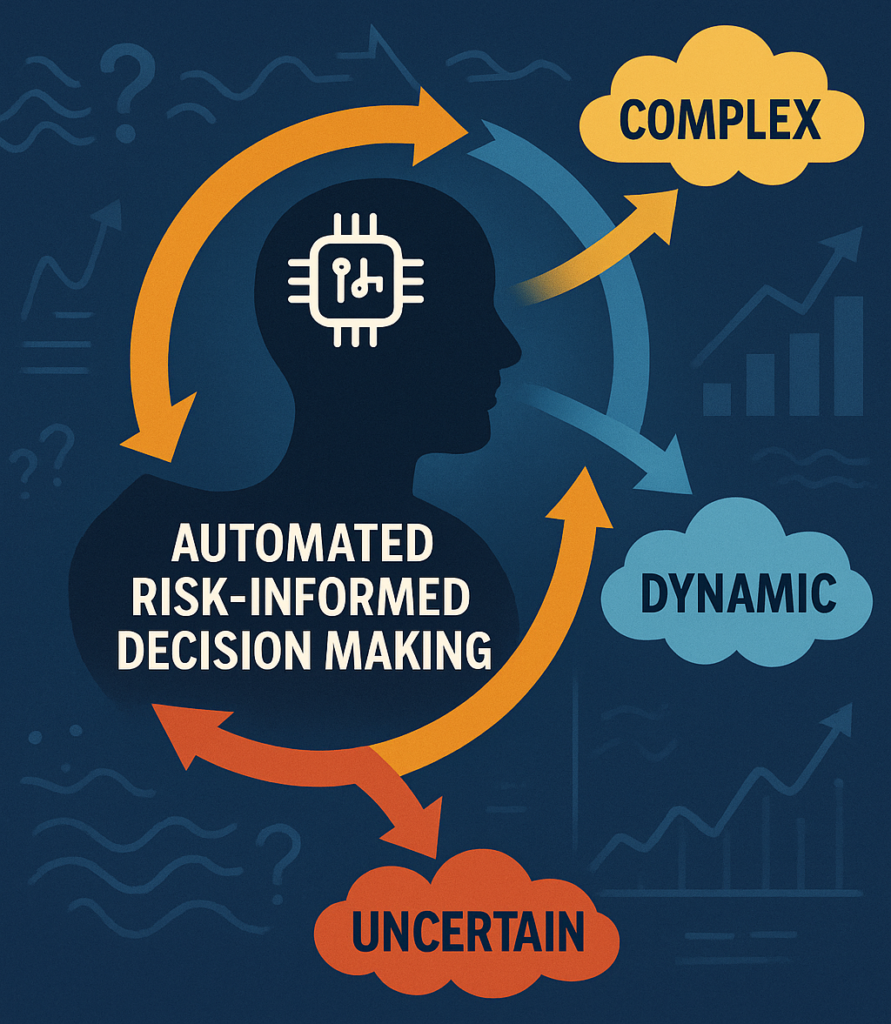
Many real-world situations, including military operations, are dynamic, uncertain, and highly complex. Risk management in such situations needs to operate at the speed of environmental changes, which can only be achieved with automated risk management. In a Defence context, effective risk management helps commanders make better-informed decisions, which saves lives. Related technology also offers benefits to other sectors such as healthcare, finance, transport, utilities, cyber security, and others.
This project will consider different approaches to automation (e.g. rules-based, expert systems, recommender systems, and machine learning) and assess the role they could play in risk management systems. It will also consider how risk appetite can be elucidated from an operator and used to modify and automate processes in real-time. The latter stages of this project will consider automated risk management within a system-of-systems enterprise risk management context, which is another novel aspect of this research. This project supports BU2025 by contributing mainly to the Animation, Simulation & Visualisation (ASV) Strategic Investment Areas (SIA).
The project will be based around a number of use cases to ensure the relevance of the research and to enable technology transition. Potential examples of management systems include electromagnetic operations management, security management, and radio spectrum management, with some in the context of systems of systems. Research outcomes will demonstrate automated risk management in a real-world, relevant application where such technology has not previously been demonstrated.
A key outcome of the project will be to understand and demonstrate the appropriate level of automation and cognition for risk management systems, and how it can be achieved. A novel aspect of this research is the automation of risk management when risk appetite, risk tolerance, and risk thresholds are constantly changing, as occurs in fast-paced military operations.
Contacts: Nigel Davies, Huseyin Dogan,Duncan Ki-Aries, Nan Jiang
Funders: Bournemouth University, Dstl
Collaborators: Dstl
